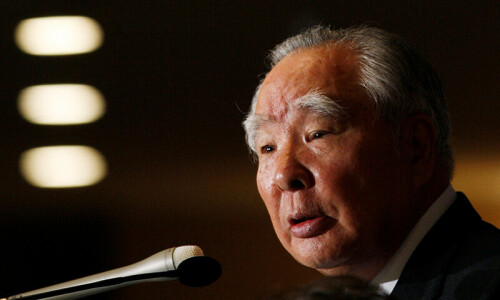WASHINGTON, June 11: The World Bank and the United States have both severely criticised India’s handling of the global food crisis, saying that New Delhi’s export bans will harm its South Asian neighbours.
“Indian government's decision to impose certain export bans on non-Basmati rice and edible oils has rattled international market,” said US Under Secretary of Commerce for International Trade Christopher A Padilla.
The World Bank noted that surging food prices have become a serious concern in South Asia where food insecurity is relatively high.
The bank’s report on Global Development Finance warned “the situation has become increasingly acute across the region — especially in Afghanistan and Bangladesh.”
The bank noted that India has imposed export restrictions to keep stocks for domestic use and to prevent sharp domestic price increase. “These policies have contributed to the increase in international grain prices,” the report said.
“We can only adequately address this crisis if we discourage continued use of export controls that will harm India's neighbours and drive up world food prices,” said Mr Padilla.
He said while export bans are designed to increase short-term food security, imposing restrictions makes the situation worse. Export restrictions take food off the global market, drive prices higher and discourage farmers from investing in future production, he added.
Besides its South Asian neighbours, several other countries, particularly from Africa, have also asked India to lift ban on food grain export. UN Secretary General Ban Ki-Moon also wants India and others to remove export curbs.
As two of the world's largest producer of agricultural goods, the US and India should refrain from the use of export quotas, “which will only exacerbate food shortages and inflate prices,” Mr Padilla said, adding “export quotas don't work. In fact, they make things worse.”













































Dear visitor, the comments section is undergoing an overhaul and will return soon.